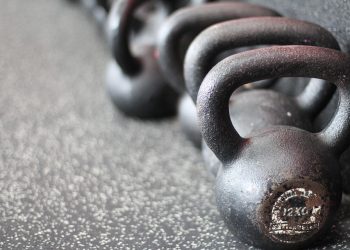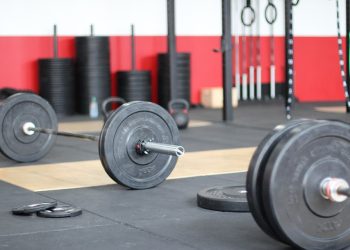Weight Loss: Follow the Science for Results
Losing weight can feel like navigating a minefield of conflicting advice. From fad diets to miracle supplements, the noise can be overwhelming. But sustainable weight loss doesn’t have to be a mystery. It’s rooted in science, and understanding the underlying principles can empower you to achieve lasting results. This article cuts through the clutter and provides evidence-based strategies for effective and healthy weight management.
The Foundation: Energy Balance
The cornerstone of weight loss is energy balance. This simple principle dictates that weight gain occurs when you consume more calories than you expend, and weight loss happens when you expend more calories than you consume. This isn’t just about counting calories religiously; it’s about understanding how your body uses energy and making informed choices about your diet and activity levels.
Calorie Deficit: The Key to Losing Weight
To lose weight, you need to create a calorie deficit. This means consistently consuming fewer calories than you burn. A deficit of 500 calories per day typically leads to a weight loss of about 1-2 pounds per week, which is generally considered a safe and sustainable rate.
There are two main ways to create a calorie deficit:
- Reducing Calorie Intake: This involves making conscious choices about what you eat, opting for nutrient-dense foods and limiting processed foods, sugary drinks, and unhealthy fats.
- Increasing Physical Activity: Exercise burns calories and helps to increase your overall energy expenditure.
A combination of both approaches is often the most effective and sustainable way to achieve a calorie deficit and lose weight.
Dietary Strategies for Weight Loss
While a calorie deficit is crucial, the *quality* of your diet also plays a significant role in weight loss and overall health. Focusing on whole, unprocessed foods can make it easier to manage hunger, boost your metabolism, and provide your body with the nutrients it needs to thrive.
Prioritize Protein
Protein is your best friend when it comes to weight loss. It’s more satiating than carbohydrates or fats, meaning it helps you feel fuller for longer, which can reduce overall calorie intake. Protein also helps preserve muscle mass during weight loss, which is important for maintaining a healthy metabolism.
Examples of Protein-Rich Foods:
- Lean meats (chicken breast, turkey, fish)
- Eggs
- Dairy products (Greek yogurt, cottage cheese)
- Legumes (beans, lentils)
- Tofu and tempeh
- Nuts and seeds
Aim to include a source of protein in every meal and snack.
Embrace Fiber-Rich Foods
Fiber, like protein, contributes to feelings of fullness and helps regulate blood sugar levels. It also promotes healthy digestion and can lower cholesterol levels. Fiber-rich foods are typically lower in calories and packed with essential vitamins and minerals.
Examples of Fiber-Rich Foods:
- Fruits (berries, apples, pears)
- Vegetables (broccoli, spinach, carrots)
- Whole grains (oats, brown rice, quinoa)
- Legumes (beans, lentils)
- Nuts and seeds
Gradually increase your fiber intake to avoid digestive discomfort.
Limit Processed Foods and Sugary Drinks
Processed foods are often high in calories, unhealthy fats, added sugars, and sodium, while being low in nutrients. They can contribute to overeating and weight gain. Sugary drinks, such as soda, juice, and sweetened coffee, are loaded with empty calories and can also lead to weight gain and other health problems.
Focus on:
- Cooking at home more often
- Reading food labels carefully
- Choosing whole, unprocessed foods over processed alternatives
- Replacing sugary drinks with water, unsweetened tea, or sparkling water
Hydrate, Hydrate, Hydrate
Drinking plenty of water is essential for overall health and can also aid in weight loss. Water can help you feel fuller, boost your metabolism, and improve your physical performance. Sometimes thirst is mistaken for hunger, so staying hydrated can prevent unnecessary snacking.
Aim to drink at least 8 glasses of water per day, and even more if you’re physically active.
The Importance of Physical Activity
While dietary changes are crucial for weight loss, incorporating physical activity into your routine is equally important for overall health and sustainable weight management. Exercise burns calories, builds muscle mass, improves cardiovascular health, and boosts your mood.
Cardiovascular Exercise (Cardio)
Cardio exercises, such as running, swimming, cycling, and brisk walking, elevate your heart rate and burn a significant number of calories. Aim for at least 150 minutes of moderate-intensity cardio or 75 minutes of vigorous-intensity cardio per week.
Examples of Cardio Activities:
- Running
- Swimming
- Cycling
- Brisk walking
- Dancing
- Hiking
Strength Training
Strength training, also known as resistance training, helps build muscle mass. Muscle tissue burns more calories at rest than fat tissue, so building muscle can boost your metabolism and make it easier to maintain weight loss over time. Aim for strength training exercises at least two days per week, working all major muscle groups.
Examples of Strength Training Activities:
- Lifting weights (dumbbells, barbells, machines)
- Bodyweight exercises (push-ups, squats, lunges)
- Resistance bands
Find Activities You Enjoy
The key to making exercise a sustainable part of your lifestyle is to find activities you genuinely enjoy. Experiment with different types of exercise until you find something that you look forward to doing. Consider joining a sports team, taking a dance class, or hiking in nature.
Beyond Diet and Exercise: Lifestyle Factors
Weight loss isn’t just about what you eat and how much you exercise; it’s also about other lifestyle factors that can significantly impact your success.
Prioritize Sleep
Lack of sleep can disrupt hormone levels that regulate hunger and satiety, leading to increased cravings and overeating. Aim for 7-9 hours of quality sleep per night to support your weight loss efforts.
Tips for Improving Sleep Quality:
- Establish a regular sleep schedule
- Create a relaxing bedtime routine
- Make sure your bedroom is dark, quiet, and cool
- Avoid caffeine and alcohol before bed
Manage Stress
Chronic stress can lead to increased cortisol levels, which can promote fat storage, especially in the abdominal area. Find healthy ways to manage stress, such as exercise, yoga, meditation, or spending time in nature.
Mindful Eating
Mindful eating involves paying attention to your hunger cues and eating slowly and deliberately. It can help you become more aware of your portion sizes and prevent overeating.
Tips for Mindful Eating:
- Eat slowly and savor each bite
- Pay attention to your hunger and fullness cues
- Minimize distractions while eating (e.g., turn off the TV, put away your phone)
- Eat in a calm and relaxed environment
Seek Support
Losing weight can be challenging, and having a support system can make a big difference. Consider joining a weight loss group, working with a registered dietitian or personal trainer, or enlisting the support of friends and family.
Addressing Common Weight Loss Myths
The world of weight loss is filled with myths and misinformation. Here are a few common myths debunked:
- Myth: Skipping meals helps you lose weight. Reality: Skipping meals can lead to overeating later and disrupt your metabolism.
- Myth: Carbs are bad for you. Reality: Complex carbohydrates, like whole grains, are an important source of energy and fiber. It’s refined carbs (white bread, pastries) that you should limit.
- Myth: You need to starve yourself to lose weight. Reality: Extreme calorie restriction can be harmful and unsustainable. A moderate calorie deficit is the key.
- Myth: Certain foods can “burn fat.” Reality: No single food can magically burn fat. Weight loss is about overall energy balance.
The Role of Professional Guidance
While this article provides a comprehensive overview of science-backed weight loss strategies, seeking professional guidance can be beneficial, especially if you have underlying health conditions or are struggling to achieve your goals on your own.
Registered Dietitian
A registered dietitian (RD) can provide personalized nutrition advice, help you create a meal plan that meets your individual needs, and educate you about healthy eating habits.
Certified Personal Trainer
A certified personal trainer can design a workout program that is tailored to your fitness level and goals, teach you proper exercise techniques, and provide motivation and support.
Doctor or Healthcare Provider
Your doctor can assess your overall health, identify any underlying medical conditions that may be affecting your weight, and recommend appropriate treatment options.
Tracking Your Progress
Monitoring your progress is a crucial aspect of any weight loss journey. It helps you stay motivated, identify what’s working and what’s not, and make necessary adjustments along the way.
- Weight: Weigh yourself regularly, but not obsessively (once or twice a week is usually sufficient).
- Measurements: Take body measurements (waist, hips, thighs) to track changes in body composition.
- Food Journal: Keep a food journal to track your calorie intake and identify areas for improvement.
- Exercise Log: Record your workouts to monitor your progress and ensure you’re challenging yourself.
- Photos: Take progress photos to visually track your body transformation.
Remember that weight loss is not always linear, and there will be ups and downs along the way. Don’t get discouraged by occasional setbacks; just stay consistent with your efforts and focus on the long-term goal.
Maintaining Weight Loss
Losing weight is only half the battle; maintaining that weight loss is often even more challenging. The key to long-term success is to adopt sustainable lifestyle changes that you can stick with for the rest of your life.
- Continue to practice healthy eating habits: Focus on whole, unprocessed foods, limit processed foods and sugary drinks, and practice mindful eating.
- Stay physically active: Continue to engage in regular physical activity that you enjoy.
- Manage stress: Find healthy ways to cope with stress.
- Prioritize sleep: Aim for 7-9 hours of quality sleep per night.
- Seek support: Stay connected with your support system.
- Be patient and persistent: Weight maintenance is a long-term process, and there will be ups and downs along the way. Don’t give up if you experience occasional setbacks.
Conclusion
Weight loss, when approached with a foundation in science, is achievable and sustainable. By understanding the principles of energy balance, prioritizing nutrient-dense foods, engaging in regular physical activity, and adopting healthy lifestyle habits, you can effectively manage your weight and improve your overall health. Remember to focus on making gradual, sustainable changes rather than drastic, unsustainable ones. Seek professional guidance when needed, and be patient and persistent with your efforts. The journey to a healthier you is a marathon, not a sprint.
Frequently Asked Questions (FAQs)
Q: How many calories should I eat to lose weight?
A: The number of calories you need to eat to lose weight depends on several factors, including your age, sex, activity level, and current weight. A general guideline is to create a calorie deficit of 500 calories per day, which typically leads to a weight loss of about 1-2 pounds per week. Use an online calorie calculator or consult with a registered dietitian to determine your individual calorie needs.
Q: What is the best diet for weight loss?
A: There is no one-size-fits-all diet for weight loss. The best diet for you is one that you can stick with long-term and that meets your individual needs and preferences. Focus on eating whole, unprocessed foods, limiting processed foods and sugary drinks, and practicing mindful eating.
Q: Is it possible to lose weight without exercise?
A: Yes, it is possible to lose weight without exercise by creating a calorie deficit through dietary changes. However, exercise offers numerous health benefits beyond weight loss, including improved cardiovascular health, increased muscle mass, and better mood. Combining diet and exercise is the most effective approach for sustainable weight management.
Q: Are weight loss supplements safe and effective?
A: Many weight loss supplements are not regulated by the FDA and may contain harmful ingredients. While some supplements may offer modest weight loss benefits, they are not a substitute for a healthy diet and regular exercise. Talk to your doctor before taking any weight loss supplements.
Q: How long does it take to see results?
A: The amount of time it takes to see results varies depending on individual factors, such as your starting weight, the size of your calorie deficit, and your activity level. You should start to see some progress within a few weeks of making consistent changes to your diet and exercise routine. Remember that weight loss is not always linear, and there will be ups and downs along the way. Be patient and persistent with your efforts, and focus on the long-term goal.
Q: What if I hit a weight loss plateau?
A: Weight loss plateaus are common and can be frustrating. When you hit a plateau, your body may adapt to your current calorie intake and exercise routine. To break through a plateau, try adjusting your calorie intake, increasing your physical activity, or changing up your workout routine. Also, ensure that you are tracking your calories and macros correctly. Consider re-evaluating your goals with a registered dietician or certified personal trainer.
Q: How do I stay motivated?
A: Staying motivated can be challenging, but there are several strategies that can help. Set realistic goals, celebrate your successes, find a support system, and reward yourself for reaching milestones. Also, remember why you started your weight loss journey in the first place, and focus on the positive changes you’re making in your life.
Q: Can stress affect weight loss?
A: Yes, chronic stress can lead to increased cortisol levels, which can promote fat storage, especially in the abdominal area. Find healthy ways to manage stress, such as exercise, yoga, meditation, or spending time in nature.












